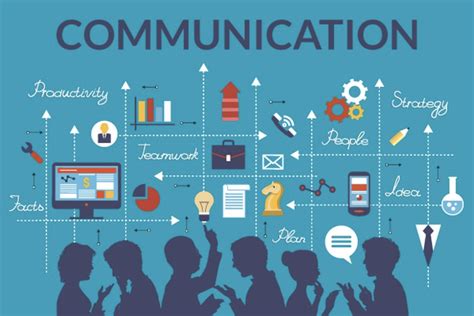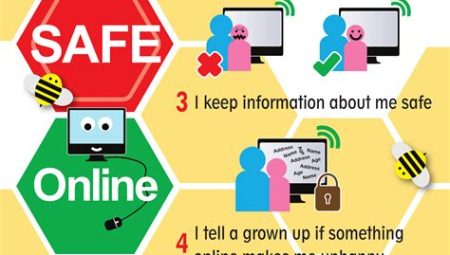In today’s digital age, social media has become an indispensable part of our daily lives. From connecting with friends and family to staying updated on the latest news and trends, social media platforms offer a multitude of benefits. However, with great power comes great responsibility, and it’s essential to understand the potential risks and take necessary precautions to ensure a safe and positive experience online.
In this comprehensive guide, we will explore important tips and strategies for mastering social media usage. From understanding the basics of social media for beginners to navigating privacy settings and identifying online scams, we will cover all the essential aspects of safe and effective social media use. Additionally, we will delve into the importance of mindful posting, managing online friendships, and avoiding cyberbullying. Our guide will also provide valuable insights on utilizing security features, understanding information privacy, and finding balance in a social media-saturated world through digital detox.
Whether you’re a social media novice or a seasoned user, this blog post will equip you with the knowledge and tools to make the most of your social media experience while staying safe and secure.
Table of Contents
Understanding Social Media: A Beginner’s Guide
Social media is a powerful tool for connecting with friends, family, and businesses from around the world. It provides a platform for sharing photos, videos, and thoughts with a large audience. With the rise of social media, it’s important for beginners to understand how to navigate this digital landscape in a safe and responsible manner.
One key aspect to understanding social media is being mindful of the information we share online. It’s essential to be cautious about the personal details we reveal and to consider the potential impact of our posts on our privacy and reputation.
Additionally, new users should familiarize themselves with the various social media platforms available, such as Facebook, Twitter, Instagram, and LinkedIn. Each platform has its own set of features, privacy settings, and community guidelines, making it crucial for beginners to understand how each platform operates.
Learning to use social media in a responsible and positive way is essential for beginners. By understanding the potential benefits and risks associated with social media, newcomers can confidently engage with these platforms while protecting their privacy and well-being.
Navigating Privacy Settings: Protecting Your Personal Information
In the digital age, the protection of your personal information is more important than ever. With the prevalence of social media and online platforms, it’s crucial to understand how to navigate privacy settings to ensure that your personal data remains secure.
One of the first steps in protecting your personal information is to familiarize yourself with the privacy settings on the platforms you use. Whether it’s Facebook, Twitter, Instagram, or any other social media site, each platform offers different privacy features that allow you to control who can see your posts, photos, and personal information.
It’s important to customize your privacy settings according to your comfort level. You can choose to make your profile and posts visible to everyone, only your friends, or a customized list of people. By setting these preferences, you can ensure that only the people you trust are able to access your personal information.
Additionally, regularly checking and adjusting your privacy settings is essential to staying protected. Make it a habit to review your settings every few months to ensure that your personal information remains secure. By staying proactive, you can minimize the risk of unauthorized access to your private data.
Creating a Strong Password: Safeguarding Your Social Media Accounts
When it comes to protecting your social media accounts, one of the most important steps you can take is creating a strong password. A strong password is one that is difficult for others to guess, yet easy for you to remember. It should be at least 12 characters long and include a mix of uppercase and lowercase letters, numbers, and special characters.
In addition to creating a strong password, it’s important to avoid using the same password for multiple accounts. This can make it easier for hackers to gain access to all of your accounts if they manage to crack just one password. Instead, consider using a password manager to generate and store unique, complex passwords for each of your accounts.
Another important consideration when safeguarding your social media accounts is to enable two-factor authentication whenever possible. This adds an extra layer of security by requiring a second form of verification, such as a code sent to your phone, in addition to your password.
By taking these steps to create a strong password and enhance the security of your social media accounts, you can greatly reduce the risk of unauthorized access and protect your personal information from falling into the wrong hands.
Identifying and Avoiding Online Scams: Staying Safe in the Digital World
As technology continues to advance, so do the methods of online scams and fraud. It’s important to be aware of the different types of scams that exist in order to protect yourself and your personal information.
One of the most common online scams is phishing, where scammers attempt to obtain sensitive information such as usernames, passwords, and credit card details by disguising themselves as a trustworthy entity. This can happen through email, text messages, or even fake websites. It’s crucial to be cautious and not click on any suspicious links or provide personal information without verifying the authenticity of the request.
Another prevalent online scam is the too good to be true offer, where individuals are promised extravagant rewards in exchange for a small upfront payment. These offers often turn out to be scams, resulting in financial loss and disappointment. It’s advisable to thoroughly research and scrutinize any offers before engaging with them.
Staying safe in the digital world requires vigilance and skepticism. By being aware of the common tactics used by scammers and taking proactive measures to verify the legitimacy of online interactions, individuals can reduce the risk of falling victim to online scams.
Mindful Posting: Building a Positive Online Presence
In today’s digital age, our online presence plays a significant role in shaping our personal and professional lives. It’s essential to be mindful of what we post on social media platforms to build a positive online presence. When we post content online, it’s important to consider how it might be perceived by others and how it reflects our values and character.
One way to build a positive online presence is to focus on posting content that is inspiring, uplifting, and empowering. Sharing positive experiences, achievements, and acts of kindness can help create a positive and encouraging online environment for ourselves and others.
Engaging in thoughtful and respectful interactions with others is also crucial for building a positive online presence. This means being mindful of how we communicate with others, avoiding negative or hurtful comments, and promoting respectful and inclusive discussions.
Overall, being mindful of our online presence and the content we share can have a significant impact on how we are perceived by others. By building a positive online presence, we can promote good digital citizenship and contribute to a healthy and supportive online community.
Managing Online Friendships: Balancing Quality and Quantity
When it comes to managing online friendships, it’s important to strike a balance between quality and quantity. In today’s digital age, it’s easier than ever to connect with people from all over the world, but maintaining meaningful relationships amidst the noise of social media can be challenging.
It’s essential to prioritize the quality of your online friendships over the sheer quantity of connections. Instead of focusing on collecting as many friends or followers as possible, take the time to cultivate genuine, meaningful relationships with those who truly add value to your life.
One way to achieve this balance is by engaging in thoughtful and meaningful conversations with your online friends. Instead of passively scrolling through your feed, take the time to interact with others by commenting on their posts, sharing personal updates, and reaching out to offer support when needed.
At the same time, it’s important to recognize that not all online friendships will be deep and meaningful, and that’s okay. It’s perfectly normal to have a mix of close, intimate connections and more casual acquaintances in your online social circle. The key is to be mindful of which relationships are truly adding value to your life and to invest your time and energy accordingly.
Avoiding Cyberbullying: Promoting Respectful Interactions
Cyberbullying is a serious issue that affects many people, especially young individuals who spend a significant amount of time online. It is important to be aware of the various forms of cyberbullying, such as harassment, impersonation, and exclusion, and to take steps to prevent them from happening.
One of the best ways to avoid cyberbullying is to promote respectful interactions online. This means treating others with kindness and empathy, and being mindful of the impact of our words and actions. It’s important to remember that there is a real person on the other side of the screen, and our online interactions can have a significant impact on their well-being.
Another important aspect of avoiding cyberbullying is to speak up when we witness it happening to others. This can involve reporting the behavior to the platform or website where it is occurring, or reaching out to offer support to the person being targeted. By standing up against cyberbullying, we can help create a safer and more positive online environment for everyone.
Ultimately, by promoting respectful interactions and actively working to prevent cyberbullying, we can contribute to a more inclusive and supportive online community. It’s important to remember that our online actions have real-world consequences, and by choosing to promote kindness and respect, we can help make the internet a safer and more positive space for all.
Utilizing Security Features: Two-Factor Authentication and Beyond
With the rise of cyber threats and hacking incidents, it’s more important than ever to prioritize the security of our online accounts. One effective way to enhance the protection of our personal information is by utilizing two-factor authentication (2FA). This security feature adds an extra layer of defense by requiring users to provide two forms of verification before gaining access to their accounts.
Besides 2FA, there are additional security features that can further safeguard our online presence. Biometric authentication, such as fingerprint or facial recognition, offers a unique and secure method of verifying our identity. Encrypted messaging and secure connections are also valuable tools that ensure our communications and data are protected from potential breaches.
Furthermore, it’s crucial to stay up-to-date with the latest security updates and patches for our devices and applications. Software vulnerabilities are often exploited by cybercriminals, making regular updates essential in maintaining a strong security posture.
By utilizing security features such as 2FA, biometric authentication, encrypted messaging, and staying vigilant with updates, we can significantly reduce the risk of unauthorized access to our accounts and data.
Understanding Information Privacy: Controlling Data Sharing
Information privacy is a critical aspect of our online presence, and controlling data sharing is essential for safeguarding personal information. With the growing concern over data breaches and misuse of personal data, it’s important to understand how to maintain privacy in the digital age.
One of the key ways to control data sharing is by carefully managing privacy settings on social media platforms and other online accounts. By utilizing privacy settings, individuals can choose who can view their posts, photos, and personal information. This allows for a more customized and secure online experience.
It’s also important to be cautious of the websites and apps that you grant access to your personal data. Many third-party applications request permission to access your information, and it’s essential to review and manage app permissions regularly. By limiting the data shared with these apps, you can reduce the risk of potential data misuse.
Furthermore, understanding the terms and conditions of online platforms is crucial for controlling data sharing. By being aware of how your data will be used and shared by these platforms, you can make informed decisions about what information to disclose and to whom.
Digital Detox: Finding Balance in a Social Media-Saturated World
In today’s society, it’s nearly impossible to escape the influence of social media. Whether it’s for work, personal connections, or entertainment, many of us find ourselves constantly connected and engaged with the digital world. However, this constant connectedness can have negative effects on our mental and emotional well-being. It’s important to take a step back and find balance in a social media-saturated world.
One way to achieve this balance is to schedule regular time away from social media and other digital devices. Designate specific times each day or week to unplug and focus on other activities, such as exercise, hobbies, or spending time with loved ones. This intentional break from the digital world can help reduce stress and improve overall mental health.
Another strategy for finding balance is to set boundaries for social media use. This can include limiting the amount of time spent scrolling through feeds, unfollowing accounts that contribute to negative feelings, and being mindful of the content that is consumed. By being selective about what we engage with online, we can create a more positive and uplifting digital environment for ourselves.
Ultimately, finding balance in a social media-saturated world is about prioritizing our mental and emotional well-being. By taking intentional breaks, setting boundaries, and being mindful of our online interactions, we can create a healthier relationship with social media and find harmony in the digital age.





